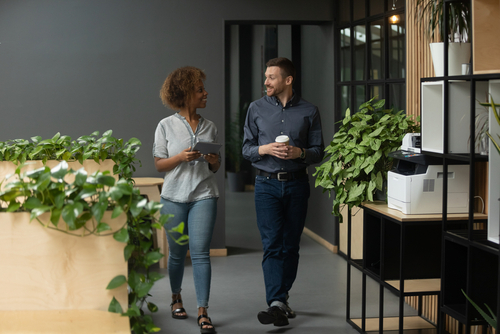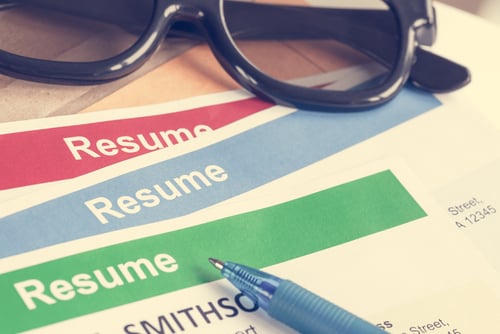Instead of joining in on the conversation, try something new and different: active listening. That is one of the abilities employers look for the most these days. One who enjoys this benefit expresses his views in various non-exclusive linguistic ways and adopts a particular interaction style based on engagement and comprehension.

Dr.Job will Explain What Active Listening is and why It is Necessary Today.

To put it briefly, while talking is a way to express yourself, listening is an invitation to let someone else into your world.
Read also, How to Write a Farewell Message To A Colleague (Tips and Examples)
Those who seem to grasp the thoughts of others before expressing their own tend to engage in "active listening," which is a form of communication.
This sort of action establishes a rapport, which is further communicated through nonverbal clues like the tone of voice, posture, and how one shows emotions in response to what is stated.
Active listening avoids dismissal that could damage relationships or the purpose of the conversation.
During the dialogue, the person speaking will experience more significant pressure if they do not sense that you are following and understanding them without judging and, more importantly, without overwhelming them with the notes and ideas contained in what he is saying. That is referred to as "competitive listening."
Professional development is aided by attentive listening.

Furthermore, active listening enables one to shape the direction of the conversation by shaping the substance of one's speech, raising one's level of awareness, and managing one's responses to others.
If you make an effort to pay attention and understand what is being said, it will evaluate how you feel about the subject on its own.
Active listening will make you a more proactive participant, no matter the context—a discussion, a negotiation, a report, a collaborative effort, or an issue you're attempting to solve.That is why active listening is credited with fostering development and encouraging performance at a high level.
In this context, the word "availability" best describes active listening because of its strong relationship to the techniques used to put it into practice.
Who Benefits Most from Active Listening

Those are looking to improve their current skill set or learn something new to pursue their passion professionally.
Workers must acquire or create new competencies to raise the bar for output quality, quantity, and efficiency.
Professional negotiators and influencers include salespeople, dealers, leaders, and others in the business world.
The question is, how does one acquire the skill of active listening?

Since the appropriate path can be difficult to discern and often depends on the characters' personalities, it's best to engage a professional coach to help you get started.
How critical is active listening?

And by actively listening, you may build trusting relationships whose members are in sync with one another and will continue to work together effectively over time.
Implementing active listening strategies

Prioritization is the key to good communication.

A person's habits can be changed by practicing specific tactics and routines; once learned, these habits become second nature, and the practitioner experiences positive changes in their professional and personal life.
Develop your capacity for patience.

Let him finish making his suggestions before you offer your thoughts or make any counter-proposals.
That has nothing to do with avoiding the other person's issues. Instead, it entails finding appropriate venues to express their grievances before being presented with workable alternatives.
Cultivate the habit of paying attentive

So pay close attention to the person speaking and set aside other thoughts; you'll be a better listener and speaker.
Talk things over, no questions asked

Judgment is inevitable, but you can control how you express it. Your efforts to demonstrate comprehension of the information presented and the preferences of the presenter will be greatly appreciated ("I understand, go on").
Since the analogy is clear and you can jump right in as he finishes talking, your listening will be more "effective."
Make use of nonverbal cues

Maintain a calm presence. Focus on the speaker, and don't bob your head around.
If someone is talking to you, give them your full attention and avoid distractions like looking at paperwork, checking your phone, or greeting and smiling at the individuals standing behind you.
Do what has to be done in a direct and efficient manner

Proof of attentive listening is demonstrating comprehension by asking questions or offering comments about what was said.
Active listening aims to demonstrate an interest in the other person's words by attentively taking them in, processing them, and responding appropriately.
That's not something you can teach someone, but it is something you should drill into them until it becomes second nature.
Listed below are ten questions you should seek answers to become a more active listener.

- Are you having trouble paying attention?
- Do you daydream about something else while the other person is talking?
- Is it better to cut off the speaker or interrupt them?
- Do you consider your response as the other person is talking?
- Do you respond even if you don't get what someone's saying?
- Do you need additional explanation and context to grasp the message fully?
- Do you become aware of your feelings when you're talking to someone?
- Could you hold off on passing judgment until we've finished talking?
- Can you keep your cool in a debate, even if the other person has a different point of view?
- Before ending a conversation, check to see if your partner has grasped your point.
- In what ways can you promote attentive listening?
Just what steps can be taken to promote attentive listening?

Pick something that piques your curiosity. That's perfect for quick chats if you're getting to know one other.
Make use of your excellent listening skills. Instead of attempting to convince someone to listen to you, show them how to improve their listening skills by becoming active listeners yourself.
If the other person seems primarily interested in chatting, it's best to end the conversation.
Active Listening: A Wrap-Up

Try taking a course in social skills or reading a self-help book on interpersonal skills if you are not a good listener.








 2023-04-26
2023-04-26
 2023-04-04
2023-04-04
 2023-03-22
2023-03-22
 2023-03-20
2023-03-20
 2023-03-08
2023-03-08